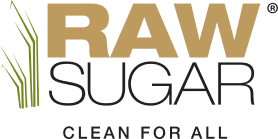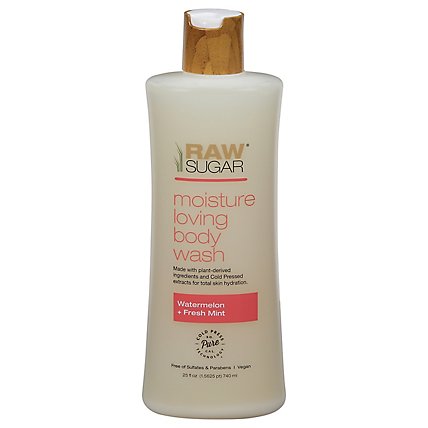Unpacking The Raw Sugar Lawsuit: What It Means For Your "Natural" Body Wash
In an era where consumers are increasingly conscious about what they put on and in their bodies, the allure of "natural," "plant-based," and "clean" beauty products has never been stronger. Brands promising wholesome ingredients and gentle formulations dominate the market, vying for the trust of health-minded individuals. Among these, Raw Sugar has carved out a niche with its vibrant packaging and claims of cold-pressed extracts and plant-powered goodness, extending from shampoos and conditioners to body washes and deodorants.
However, beneath the surface of this seemingly idyllic clean beauty landscape, a storm has been brewing. Recent legal challenges, particularly the widely discussed Raw Sugar shampoo lawsuit, have cast a shadow of doubt over the very promises that draw consumers in. While the most prominent allegations have centered around their shampoo, the implications of these lawsuits extend far beyond a single product, raising critical questions about transparency, honesty, and accountability across the entire "natural" beauty industry, including products like Raw Sugar body wash.
This article delves into the heart of the Raw Sugar lawsuit, exploring the allegations, the broader industry context, and what these developments mean for you, the discerning consumer. It's a wake-up call for anyone who believes in the power of truly natural self-care.
The Core of the Raw Sugar Lawsuit: Beyond the "Natural" Label
The essence of the Raw Sugar lawsuit revolves around a fundamental breach of trust: the alleged discrepancy between how products are marketed and what they actually contain. Consumers are increasingly demanding clarity, and these lawsuits highlight the serious consequences when that clarity is absent.
Allegations Against Raw Sugar: Shampoo and Body Wash Concerns
The primary legal action that has garnered significant attention is the Raw Sugar Shampoo lawsuit. This class-action suit alleges that the company's shampoo formulations are "very far from the 'plant-powered clean' as promised by the brand." Customers have come forward with alarming claims, alleging that the product's ingredients, despite being marketed as safe and natural, have caused significant harm, including hair loss and scalp issues. The company, for its part, denies wrongdoing, asserting the safety and efficacy of its products.
While the lawsuit specifically targets the shampoo, the concerns raised by plaintiffs naturally extend to other products within the Raw Sugar line, including their popular body wash. Raw Sugar Body Wash is marketed as a "plant-based body wash made with all-natural ingredients such as cold-pressed oils, fruit extracts, and essential oils," and claims to be "free from harsh" chemicals. However, if the brand's core promise of "plant-powered clean" is being challenged for one flagship product, it casts a shadow over the entire brand identity and raises questions about the true nature of ingredients across their whole range.
The lawsuit underscores a critical point: consumers are not just buying a product; they are buying into a philosophy. When that philosophy, particularly one centered on health and natural purity, is perceived as misleading, it erodes trust in the entire brand and, by extension, the "clean beauty" movement itself.
The Broader Context: A Trend of "Natural" Deception
The Raw Sugar lawsuit is not an isolated incident. It's part of a growing trend of legal challenges against personal care companies accused of misleading marketing regarding their "natural" claims. This indicates a systemic issue within the industry, where vague or unregulated terms like "natural" are exploited for marketing advantage.
- The NATIVE Lawsuit: A prominent example is the recent lawsuit against the company NATIVE, known for its hair and body wash as well as deodorant. Their entire brand identity is built around being "natural." Yet, they recently faced legal action for allegedly being deceitful about their ingredients, demonstrating that even brands synonymous with "natural" can fall short of consumer expectations and legal standards.
- Problematic Ingredients: Beyond vague claims, specific ingredients have also come under scrutiny. The Center for Environmental Health (CEH), for instance, filed a California lawsuit against four companies selling products containing cocamide DEA, a foaming agent linked to cancer, and has sent legal notices to more than 100 other companies. This highlights how certain chemicals, even if not explicitly listed as "harsh," can still be problematic, regardless of a product's "natural" branding.
- Other Industry Giants: It's not just smaller or mid-sized brands under fire. A new class-action lawsuit was recently filed against health and personal care giant Johnson & Johnson’s hair care brand, OGX. The suit’s claims allege that the brand’s shampoo, like Raw Sugar's, caused hair loss and scalp irritation, further cementing the idea that this is a widespread industry challenge.
These parallel cases paint a clear picture: the personal care industry is facing increasing pressure to back up its marketing claims with verifiable ingredient transparency and safety.
Consumer Experiences and Concerns
At the heart of these lawsuits are the real-life experiences of consumers. The allegations against Raw Sugar are not merely theoretical; they stem from individuals who used the products and reported adverse effects. One such experience detailed in the context of the shampoo lawsuit mentioned a user developing "red blotches along my hairline on my forehead after my shower" after using a new formula, despite only washing their hair once a week. These personal anecdotes underscore the gravity of the allegations and the potential impact on consumer health and well-being.
Consumers purchase products like Raw Sugar body wash expecting a gentle, nourishing experience consistent with its "plant-based" and "natural" marketing. When these expectations are unmet, and worse, when harm occurs, it leads to a profound sense of betrayal and prompts legal recourse.
Why This Lawsuit Matters: Transparency and Accountability
The Raw Sugar lawsuit, particularly concerning its shampoo but with broad implications for its entire product line including body wash, serves as a crucial warning. It's a clear signal to both consumers and the beauty industry as a whole that transparency, honesty, and accountability in marketing and product formulation are no longer optional—they are paramount.
The Call for Transparency in the Beauty Industry
This legal action emphasizes the urgent need for clearer labeling and more rigorous standards for what constitutes "natural" or "clean" in personal care products. The current regulatory landscape often allows for broad interpretations, leading to consumer confusion and potential deception.
For consumers seeking truly safe and effective products, resources like the EWG’s Skin Deep® database are invaluable. This database provides practical solutions to help individuals protect themselves and their families from everyday exposures to chemicals in personal care products, offering ingredient hazard ratings and health information.
Protecting Yourself as a Consumer
In light of these ongoing legal battles and the broader issues within the beauty industry, consumers must become their own advocates. Here are some steps you can take:
- Read Ingredient Lists Carefully: Don't just rely on front-of-package claims like "natural." Flip the product over and scrutinize the full ingredient list.
- Research Unfamiliar Ingredients: If you see an ingredient you don't recognize, look it up using resources like EWG's Skin Deep® database or reputable scientific sources.
- Be Skeptical of Vague Claims: Phrases like "plant-powered" or "cold-pressed" sound appealing, but without specific details or third-party certifications, they can be misleading.
- Check for Certifications: Look for recognized certifications from independent bodies that verify organic, cruelty-free, or specific ingredient standards.
- Read Reviews (Critically): While personal experiences can be insightful, remember that individual reactions vary. Look for patterns in reviews, especially concerning adverse effects.
- Understand Return Policies: If you purchase a product and are dissatisfied or experience issues, know your rights. For example, Raw Sugar offers a 30-day return policy for products like their lip scrub or body wash, which can be useful if a product doesn't meet your expectations.
Looking Ahead: The Future of "Clean Beauty"
The Raw Sugar lawsuit, alongside similar cases involving other brands like Native and OGX, represents a pivotal moment for the beauty industry. These legal challenges are forcing companies to re-evaluate their marketing practices and ingredient sourcing, pushing them towards greater transparency and accountability.
The outcome of these lawsuits could set new precedents for how "natural" and "clean" products are advertised and formulated. It could lead to stricter regulations, more robust industry self-policing, and ultimately, a more trustworthy market for consumers seeking genuinely safe and effective personal care products. The growing demand for truly safe and effective products, coupled with increased consumer awareness and legal scrutiny, will undoubtedly shape the future of the "clean beauty" movement, hopefully leading to a landscape where product claims truly align with product realities.
Summary
The Raw Sugar lawsuit, particularly concerning its shampoo but with significant implications for its entire product line including body wash, highlights a critical issue in the beauty industry: the alleged disparity between "natural" marketing claims and actual product formulations. Consumers have reported adverse effects like hair loss and scalp issues, challenging the brand's promise of "plant-powered clean." This case is not isolated, mirroring lawsuits against other "natural" brands like Native and OGX, underscoring a broader industry trend of misleading ingredient claims and a lack of transparency. The lawsuit serves as a vital warning, emphasizing the urgent need for greater accountability from manufacturers and encouraging consumers to be vigilant, research ingredients, and utilize resources like EWG's Skin Deep® database to protect themselves. Ultimately, these legal actions are pushing the beauty industry towards a future where honesty and verifiable safety are paramount, ensuring that "clean beauty" truly lives up to its name.
- Lifeguard Whistle Codes
- Amanda Duvall
- Corey Bonner
- Christian Cream
- Fun Guy Vegan Fruit Chews Reviews

Olay Fresh Outlast Body Wash, Variety Pack, 23.6 Fl Oz, 3 Ct - Walmart.com

Clean Body Wash & Kids Bubble Bath Products - Vegan & Sulfate-Free

Raw Sugar Body Wash Watermelon Plus Fresh Mint - 25 Fl. Oz. - albertsons